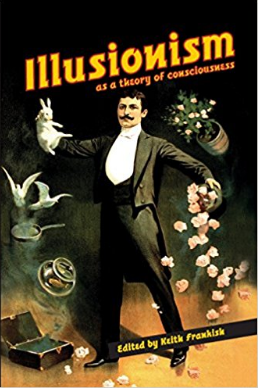In this episode, I had the pleasure of speaking with Dr. Bernardo Kastrup. Bernardo has a Ph.D. in computer engineering with specializations in artificial intelligence and reconfigurable computing. He has worked as a scientist in some of the world’s foremost research laboratories, including the European Organization for Nuclear Research (CERN) and the Philips Research Laboratories (where the “Casimir Effect” of Quantum Field Theory was discovered). He has authored many academic papers and books on philosophy and science. Three of his most recent books, available at online booksellers are: More Than Allegory, Brief Peeks Beyond and Why Materialism Is Baloney.
Please enjoy this conversation with Dr. Bernardo Kastrup, where we dive into that notion that Materialism…is baloney.
Questions:
- How has your background in Computer Engineering and Artificial Intelligence affected your views on consciousness?How have your studies of consciousness and idealism affected your notion of AI and AC?
- What is the difference between artificial intelligence and artificial consciousness?
What do you think it would take for a computer to have what you call ‘private inner experience’? Possible? The hard question applies to computer consciousness as well as human consciousness? - You have papers and videos and a book on breaking down the materialist argument(s). What is the most common argument for materialism and how do you counter that?
Can we review the argument about psychoactive drugs?
Do your counter-arguments to materialism also apply to dualism, since you’re removing the material part of the mind-body duality?
You say it’s a mistake to say that science explains or supports materialism. Is that correct? Can you explain why that’s a mistake?
What are your thoughts, if any, on integrated information theory (IIT) and how it measures consciousness in the brain, postulates a physical substrate of consciousness? - As an idealist, how do you avoid solipsism? Or, do you?
- What is your opinion of ‘unconsciousness’?
The self/ego and reflection, you say, ‘amplify’ consciousness. You also mention Robin Carhart-Harris’ psychedelic studies as decreasing brain activity. Is the ‘unconscious’ state a baseline condition of consciousness?
What are your interpretations of Robin Carhart-Harris’ psychedelic studies, that brain activity slows down or reduces during psychedelic experiences?
What IS ego/self?
What implication does that have on the notion of dreams (or hallucinations)?
Can you please tell us more about the ‘collective unconscious’ and how it generates reality? - You mention (in Scientific American), that “subatomic particles are the “pixels” of experience, not necessarily of the experiencer.” What is the difference between the experience and the experiencer? Does an experience exist independently of the experiencer?
Your analogy of pixels and pixelated images to experience, can you explain that for us? Would you mind running that analogy for one’s experience of, say, the color red? Also, to your analogy to the whirlpool? - You mention that the universe, as a whole, can be conscious – is mental. Can you explain or expand on that?
There is something it is like to be the universe, as a whole? I have as much of a hard time with that as I do a stone.
Particles are affected by our observation. We can’t know of particles behaving independent of our observations. Therefore, the Universe is a product of our minds — idealism. Do I have that right? - Where do you stand on the survival of consciousness after death?
The body is the localization of consciousness? When the body dies, it de-localizes? Does it maintain memories, or are memories the function of (the image of) the brain?
Where do you stand on psi phenomena, especially near death experiences? [Ed Kelly wrote the afterward for your book?]
Newly added, what about the emergence of consciousness? - In your own studies and in the study of consciousness, what about future discoveries or advances excites you?
Podcast: Play in new window | Download
